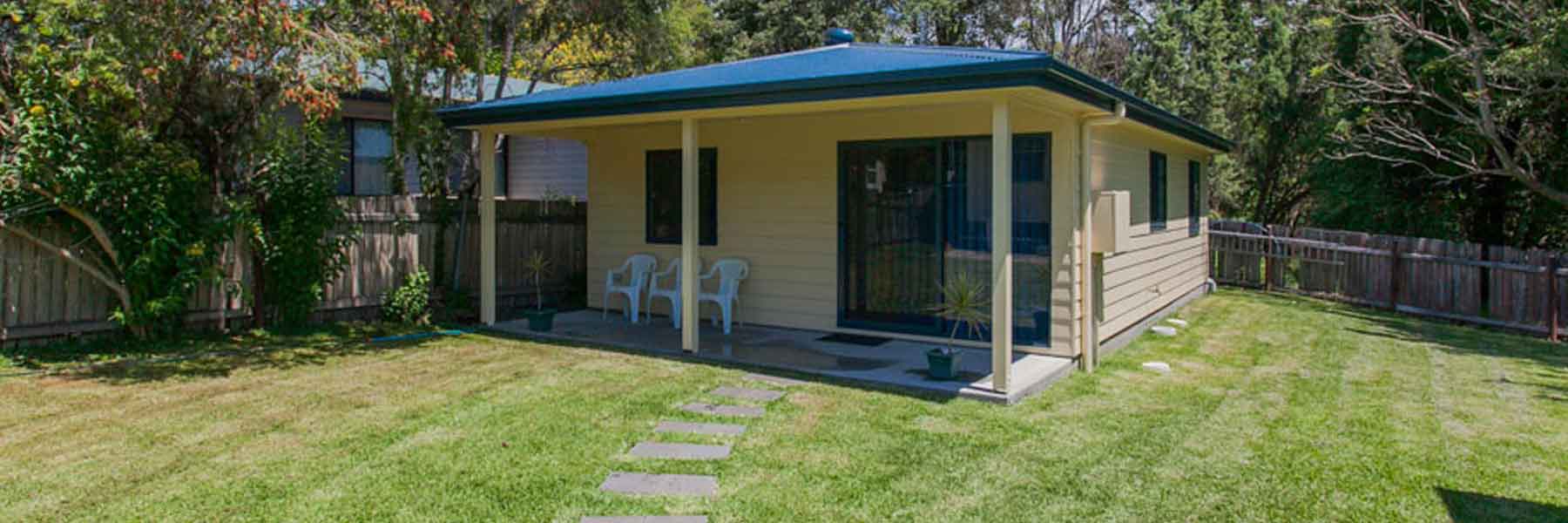Home > Home Loans > Non-Genuine Savings Home Loans
Non-Genuine Savings Home Loans
Did you know that it is still possible to obtain a home loan with non-genuine savings?
Author
Savvy Editorial TeamFact checked
Buying a home can be a stressful process. Whether you’re a first home buyer, a property investor, or looking at a holiday home, non-genuine savings home loans allow you flexibility in obtaining a home loan without the traditional necessity of a strong savings history and a significant upfront deposit. Here we explain the fundamentals of non-genuine savings home loans and what this option means for you, the borrower.
What is a non-genuine savings home loan?
When applying for a home loan, an applicant will be required to inform the lender of their savings history and how they have saved their deposit. This is done to understand an applicant’s ability to complete home loan repayments over the period of the loan. While genuine savings are earned over a period of time and demonstrate a consistent ability to save money, non-genuine savings arise from gifts or lump sums which have not been saved in a genuine manner over time. In addition, a non-genuine savings home loan can be used in a situation where a borrower provides a guarantor as security for the lender.
What is considered non-genuine savings?
Types of non-genuine savings can include the following:
- Sale of an asset
- Sale of shares
- Inheritance and/or gifts from family
- Work bonuses
- Tax refunds
- Savings from foreign income
- Equity in property
Is there a minimum amount required as a deposit for a non-genuine savings home loan?
The minimum deposit required for a non-genuine savings home loan will vary from lender to lender. With certain lenders it is possible to get a non-genuine savings loan up to 100% of the property’s purchase price – meaning no deposit required – if you have a guarantor and can pay off the costs of completion. In addition, your individual situation will be heavily assessed and you will have to meet the remaining eligibility criteria. However, most lenders will require you to prove that you have genuine savings of at least 5% of the property’s price. Bear in mind, with all deposits less than 20%, you will generally be required to pay Lenders Mortgage Insurance. Ultimately, the greater your genuine savings deposit, the better your chances of being successful in applying for a home loan.
What are the basic home loan conditions which apply to a non-genuine savings home loan?
While not all these requirements are definitively needed to be successful in obtaining a non-genuine savings home loan, they will improve your chances drastically.
- Be at least 18 years of age. Furthermore, some lenders may be hesitant to approve loans to borrowers over the age of 55.
- Must be a permanent Australian resident. If not, you will require permission from the Australian government’s Foreign Investment Review Board.
- Must be borrowing as an individual, company or trustee of a trust. Companies and trustees will require more specific documentation and have different lending criteria in place.
- Stable source of income. Casual and seasonal employees will find it more difficult to get approved for a home loan. Lenders look in favour of applicants who have held the same jobs for 12+ months. In addition, self-employed applicants will find the process more complicated and need to provide different documentation including business activity and tax returns amongst others.
- A strong financial history. Lenders will assess and/or require the following of you:
- Your income to determine the price of repayments you can manage.
- A strong credit score is needed in order to determine an applicant’s debt repayment history. Poor credit history might hinder your home loan application, especially in the instance of a non-genuine savings home loan.
- Examine your monthly expenses to establish your disposable income.
- Details of assets and liabilities. Assets can include vehicles, shares, superannuation and property owned. Liabilities can include debts such as credit cards, car loans, personal loans or HECS/HELP debts.
- At least a 5% deposit from savings. While not necessary with some lenders regarding applications for non-genuine savings home loans, it is still recommended to save for a minimum 5% deposit to increase your chances of home loan approval.
- Location of property must be approved by lender. Lenders will take into account location, nature, size and title of the property you are purchasing. As the property is used as security for the home loan, its locational features must appeal to the lender to ensure they are able to sell the property should the borrower be unable to repay the loan.
- The purpose of purchasing the home will dictate what type of home loan the borrower can get. If you are purchasing the home with the intention of being an owner-occupier, you will likely accrue lower interest rates and face less restrictions. However, if it is an investment home loan, borrowers are likely to face greater interest rates and more strenuous lending criteria.
Do non-genuine savings home loans cost more than regular home loans?
The rates and fees associated with your non-genuine savings home loan depend on the percentage of the purchase price you are borrowing and may be judged on a case-by-case basis.
- Generally, if you’re borrowing less than 80% of the home’s purchase price with a non-genuine savings home loan, there will be no difference in rates, fees or lenders mortgage insurance (LMI) with most lenders.
- When borrowing a non-genuine savings home loan of up to 90% of the home’s purchase price, most lenders will offer the same or very similar rates and fees as borrowers who have put down a regular home loan deposit but a LMI will be charged.
- With loans of up to 95% of the home’s purchase price, lenders may opt to charge a greater LMI.
Your home loan options
Making your first big step towards buying a home? It's crucial to be across your mortgage options as a first homebuyer.
Opting for a variable interest rate on your home loan means it'll fluctuate as the market moves throughout your repayment term.
On the other hand, fixing your rate locks it in for a pre-defined period. This can bring with it greater certainty around your budget.
It's important not to set and forget when it comes to your home loan. If you find a more competitive offer, it may be worth refinancing.
If you're looking to build a new house, construction loans are specifically designed to cater to the different needs associated with doing so.
A guarantor essentially acts as a safety net for your lender, as they sign onto your loan to agree to pay it off should you become unable to do so.
Purchasing a property as an investment brings with it different specifications from a lender. It's crucial to know what your options are.
Businesses big or small may wish to purchase a property for commercial purposes, which are also different from a standard loan.
Your home loan may give you an interest-only option, which allows you to exclusively pay interest on your loan for a set period.
Just because your finances may be slightly more complicated as a self-employed individual doesn't mean you can't take out a home loan.
Some lenders may allow you to apply for a home loan with alternative documents, such as tax returns, BAS and ABN registration.
There are several options for purchasing a property without a cash deposit, such as equity in another property if you or your guarantor own one.
Why compare home loans with Savvy?
100% free
You don't have to pay a cent to compare home loans with us, enabling you to do so at any time.
Paperless quote process
You can fill out a simple online quote via our form without having to worry about sorting through heaps of paperwork.
Trusted lenders
With a panel of reputable mortgage lenders behind us, you can rest assured you'll be comparing high-quality options.
How do I apply for a non-genuine savings home loan?
Ensure you meet all the basic requirements for home loan applicants in Australia.
Making sure you meet all the basic conditions for home loan applications will ensure a smoother process for the borrower and the lender. If you convincingly meet the basic conditions, your non-genuine savings home loan application will be off to a strong start and favoured by the lender.
Work out a property purchase price which fits your budget and any specific home loan features you want.
You will need to figure out how much you can afford to put down as a deposit based on your budget as well as a property purchase price which is within your means. While a lesser deposit will save you upfront costs, it will only harm you in the long run. Save as much as possible and ensure you are purchasing a property which fits into your short term and long-term financial budget. Remember, the more money borrowed, the greater the amount of interest you will pay over the period of the loan. As part of this process, you will also need to figure out what sort of repayments best suit your financial situation. How often would you like to make repayments and would you like these repayments to be fixed or variable?
Find a suitable lender which offers non-genuine savings home loans.
Finding the perfect lender for you who offers the option of a non-genuine savings home loan can be difficult. While traditional banks, credit unions, online lenders and bad credit lenders are all providers, some will not consider your application without genuine savings. It is important to find a lender with a viable non-genuine savings home loan policy which is right for your financial situation and the features you seek in a home loan.
Pros & cons of a non-genuine savings home loan
Pros of a non-genuine savings home loan:
Affords opportunity to buyers who have come into money without a history of savings.
In the time taken to save a home deposit, the housing market may have risen steeply. Demand is increasing and according to the Australian Bureau of Statistics, new loan commitments for housing were up 8.6% in December 2020. A non-genuine savings home loan policy may allow the buyer to purchase property prior to a price increase and get ownership of a home at a lower price in comparison.
Shortens the traditionally long road to home ownership and increases chances of getting into housing market at a younger age.
Cons of a non-genuine savings home loan:
Heavily scrutinised home loan application.
Must convincingly meet other stipulations as set by your lender e.g. high credit score, stable employment, minimal consumer debt.
High interest rates. The more you borrow for your loan, the more interest you will be required to pay the lender over the lifetime of the loan.
Frequently asked questions about non-genuine savings home loans.
If your loan application is rejected, it should have no bearing on the success of any future applications. When rejected, you will receive a letter from the lender explaining why. This will inform you of any conditions you didn’t meet or areas which need attention, as well as providing you with an opportunity to further improve your savings.
A non-genuine savings home loan may take longer to process than a normal home loan due to the stricter criteria and stronger checks. However, expect it could take between 4-6 weeks from the date of application to the date of settlement to be processed.
The interest rate you will pay is heavily influenced by the amount of your upfront deposit and your application’s loan to value ratio. The greater the loan to value ratio, the higher the interest rate you will likely be assessed.
Loan to Value Ratio (LVR), is the term lenders use to describe the amount you will need to borrow to purchase a property. The LVR is the amount you need to borrow, expressed as a percentage of your property’s value as assessed by the lender.
A family member or friend who guarantees the loan for you, the borrower, is the guarantor and is liable to pay back the loan if the borrower fails to do so. Before agreeing to be a guarantor or even asking a family member or friend to be guarantor, ensure they understand the loan contract back to front and are aware of the financial risks they face.









